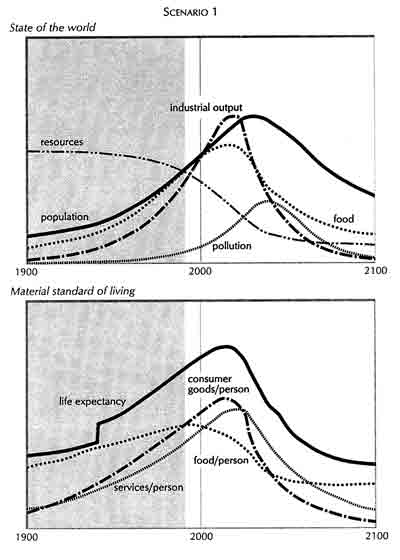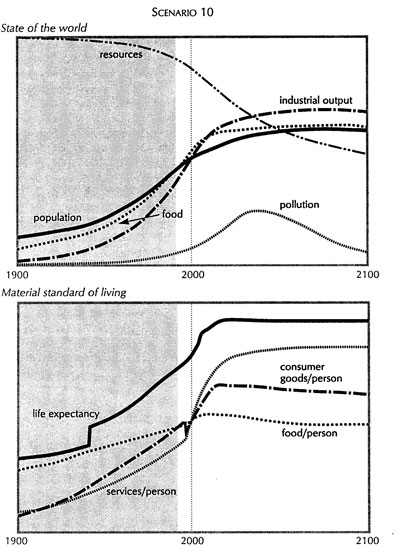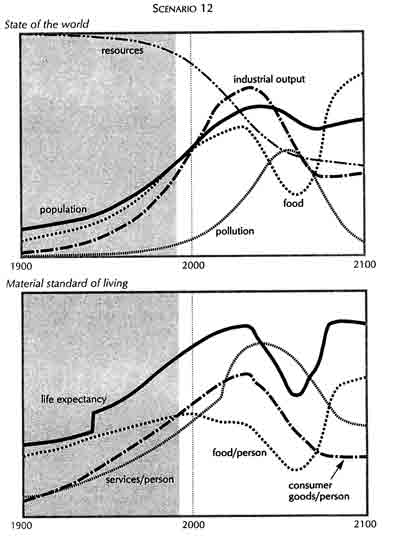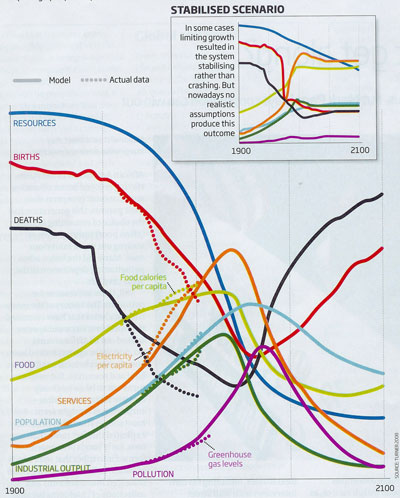Environment and Spirituality 1
The environmental crisis and our lack of spirituality
Course prepared by Arthur Dahl
What is the relationship between environment and spirituality?
We are facing existential environmental crises like climate change and the collapse of biodiversity. These are scientific issues. What is the Bahá’í perspective on a complementary role for spirituality and religion in solving them? We shall explore:
1. the environmental crisis and our lack of spirituality
2. spiritual reflections on our relationship with nature
3. social transformation – the role of spirituality
4. spiritual dimensions and practical actions, the environmental example of ‘Abdu’l-Bahá, the role of the individual
Diagnosing the illness
The All-Knowing Physician hath His finger on the pulse of mankind. He perceiveth the disease, and prescribeth, in His unerring wisdom, the remedy. Every age hath its own problem, and every soul its particular aspiration. The remedy the world needeth in its present-day afflictions can never be the same as that which a subsequent age may require. Be anxiously concerned with the needs of the age ye live in, and center your deliberations on its exigencies and requirements.
(Bahá'u'lláh, Gleanings from the Writings of Bahá'u'lláh, 106)
Our present unsustainability
Population growth 9 billion in 2050, 11 billion in 2100, or peak and ageing decline?
20% of population consumes 80% of resources; half the population can hardly make ends meet
Energy challenge and the climate crisis
Increasing water shortages
Loss of biodiversity and ecosystem services
Soil degradation; risks to food security
Extremes of wealth and poverty accelerating
Risk of financial collapse
Ecological footprint
Surface needed to supply the needs and absorb the wastes of an individual, community, or country
- Global average 2.3 global hectares/person
- USA 8.1 gha/person, China 3.6 gha/p.
- United Kingdom 4.4 gha/person, Switzerland 4.6 gha/p.
- Resources available 1.9 gha/person
We overshot the earth's capacity in 1970
https://www.footprintnetwork.org/
What caused the environmental crisis?
Early in the twentieth century, a materialistic interpretation of reality had consolidated itself so completely as to become the dominant world faith insofar as the direction of society was concerned.
(Universal House of Justice, One Common Faith, p. 3-4)
Materialism and Economic Exploitation
Having penetrated and captured all significant centres of power and information at the global level, dogmatic materialism ensured that no competing voices would retain the ability to challenge projects of world wide economic exploitation.
(Universal House of Justice, One Common Faith, p. 5)
Materialism
Materialism, rooted in the West, has now spread to every corner of the planet, breeding, in the name of a strong global economy and human welfare, a culture of consumerism. It skilfully and ingeniously promotes a habit of consumption that seeks to satisfy the basest and most selfish desires, while encouraging the expenditure of wealth so as to prolong and exacerbate social conflict. One result is a deepening confusion on the part of young people everywhere, a sense of hopelessness in the ranks of those who would drive progress, and the emergence of a myriad social maladies.
Universal House of Justice, 2 April 2010
Consumer Culture
Consumer culture, today's inheritor by default of materialism's gospel of human betterment, is unembarrassed by the ephemeral nature of the goals that inspire it.
Emboldened by the breakdown of traditional morality, the advance of the new creed is essentially no more than the triumph of animal impulse, as instinctive and blind as appetite…
(Universal House of Justice, One Common Faith, p. 10)
Tendencies once universally castigated as moral failings mutate into necessities of social progress. Selfishness becomes a prized commercial resource; falsehood reinvents itself as public information…
Under appropriate euphemisms, greed, lust, indolence, pride - even violence - acquire not merely broad acceptance but social and economic value.
(Universal House of Justice, One Common Faith, p. 10)
Our society of abundance
The most significant impact on the environment and sustainability comes from the wealthy and our society of abundance. Our materialistic consumption is not compensated by advances in technology. The only way we can avoid the climate and biodiversity catastrophes is through a significant reduction in our lifestyle and GDP in Western economies, with all the losses in employment and changes in our economic model that this implies. We must rethink our communities from the bottom up and simplify our ways of living.
(based on Thomas Wiedmann 2020)
Excessive consumption leads to catastrophe
Business as usual with continuing economic growth

Scenario 1995, transition to sustainability after the Rio Earth Summit of 1992

Scenario 2015, transition to sustainability only in 2012

Scenarios from Limits to Growth – 1972 (Meadows et al. (1992) Beyond the Limits)
Where are we now? On track

The transition to sustainability without a crisis is no longer a realistic possibility
MacKenzie, Debora. 2012 Doomsday Book. New Scientist, 7 January 2012, pp. 38-41.
Moderation needed in material civilization
The civilization, so often vaunted by the learned exponents of arts and sciences, will, if allowed to overleap the bounds of moderation, bring great evil upon men.... The day is approaching when its flame will devour the cities...
Bahá'u'lláh (1817-1892)
Two processes: disintegration and integration
The process of disintegration must inexorably continue, and its corrosive influence must penetrate deeper and deeper into the very core of a crumbling age. Much suffering will still be required ere the contending nations, creeds, classes and races of mankind are fused in the crucible of universal affliction, and are forged by the fires of a fierce ordeal into one organic commonwealth, one vast, unified, and harmoniously functioning system.
Shoghi Effendi 1936, The World Order of Bahá'u'lláh
Adversities unimaginably appalling, undreamed of crises and upheavals, war, famine, and pestilence, might well combine to engrave in the soul of an unheeding generation those truths and principles which it has disdained to recognize and follow. A paralysis more painful than any it has yet experienced must creep over and further afflict the fabric of a broken society ere it can be rebuilt and regenerated.
Shoghi Effendi 1936, The World Order of Bahá'u'lláh
The promised crises are here
The pandemic with its dead and social chaos
Climate and biodiversity catastrophes
The coming financial crisis – insurmountable debts
Famine on the horizon
The only thing missing is war (for the moment)
The environmental crises
- Climate change, seven years to turn the corner
- The collapse of biodiversité: 80% of insects in Europe; 60% of vertebrates in the world
- Overshooting planetary boundaries
- Plastic pollution
- Toxic chemicals, nuclear wastes, threaten our health
- Urban air pollution kills millions
Man the destroyer

In His talk on science and religion at Stanford University in California in 1912, 'Abdu'l-Bahá said: The elements and lower organisms are synchronized in the great plan of life. Shall man, infinitely above them in degree, be antagonistic and a destroyer of that perfection?
('Abdu'l-Bahá, talk at Leland Stanford Junior University, Palo Alto, California, 8 October 1912. Promulgation of Universal Peace. Wilmette, Bahá'í Publishing Trust, 1982. p. 350)
A positive approach
In a day such as this, when the tempests of trials and tribulations have encompassed the world, and fear and trembling have agitated the planet, ye must rise above the horizon of firmness and steadfastness with illumined faces and radiant brows in such wise that, God willing, the gloom of fear and consternation may be entirely obliterated, and the light of assurance may dawn above the manifest horizon and shine resplendently.
(‘Abdu’l-Bahá)
The world stands more and more in need of the hope and the strength of spirit that faith imparts.
Universal House of Justice, Naw-Ruz 177 (20 March 2020)
Your turn
While we cannot say now where all that will lead, it is clear that the world will never be the same.
This is our chance to fix what is wrong in our societies and in our relationship to the environment.
Questions for discussion
What is a consumer lifestyle? How is it expressed in our own lives?
How can we start individually and collectively to transform our lifestyle and reduce our ecological footprint?
What qualities, attitudes and approaches can we cultivate individually and collectively to have the strength to get through these difficulties?

Last updated 9 January 2021
